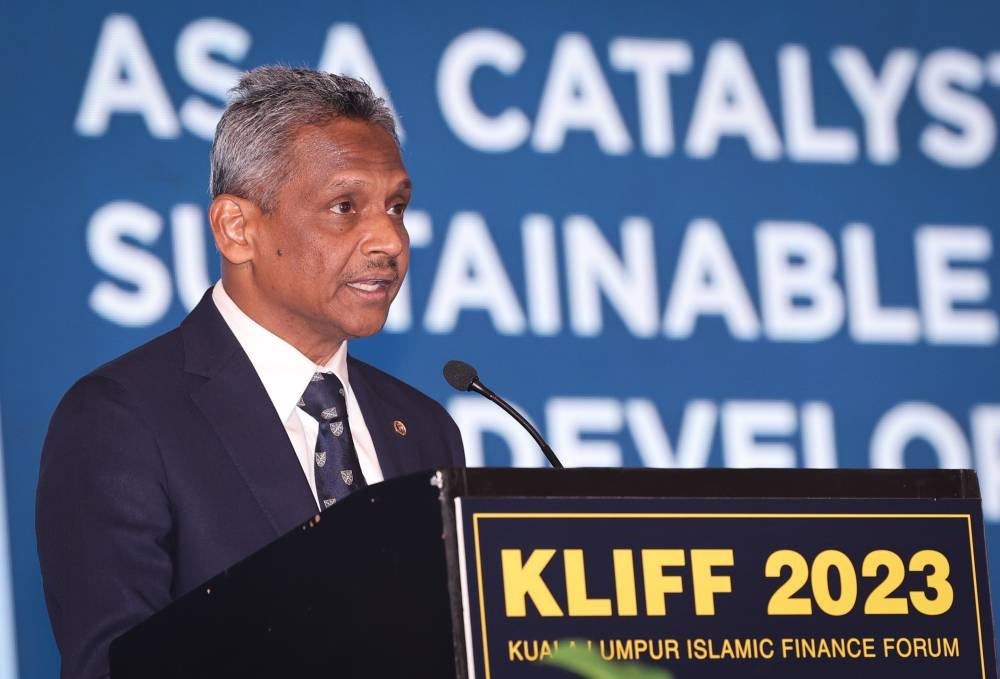Reorientation of investment priorities necessary to achieve SDG by 2030 - BNM Governor

KUALA LUMPUR - Delivering change at the speed and scale needed to achieve the Sustainable Development Goals (SDGs) by 2030 demands a reorientation of investment priorities to align with more sustainable and value-based principles in the financial sector, said Bank Negara Malaysia governor Datuk Abdul Rasheed Ghaffour.
He said the financial sector undoubtedly plays an important role in supporting sustainable economic transformation.
"The United Nations Conference on Trade and Development and the International Monetary Fund (IMF) estimate that there is a significant funding gap of approximately US$4.3 trillion in global annual investments to make strides in achieving the SDGs,” he said in his keynote address at the Kuala Lumpur Islamic Finance Forum (KLIFF) 2023 here today.
While this may appear to be a staggering amount, he said this was equivalent to only around one per cent of the US$379 trillion of total financial assets held by banks, institutional investors and asset managers.
"The call for Islamic finance to shift from ‘halal’ to ‘thoyyib’ as one of the key drivers of the economic framework, which aligns closely with the fundamental values of Shariah that underpin Islamic finance, is thus very timely,” he said.
Abdul Rasheed noted that the aim to integrate balanced wealth creation with wealth transfer and circulation could fundamentally drive Islamic financial institutions to actively reorientate and facilitate more equitable financial resource allocation for productive and sustainable use.
"This in turn could boost productive economic activities that support Malaysia’s transformation to become a high-income nation, reducing economic disparities and fostering intergenerational equity,” he said.
He said Malaysia is also not spared from significant challenges in its pursuit to become a more progressive, sustainable and just nation, having to face multiple headwinds such as elevated inflation and moderating global trade, among others.
"The Malaysian economy continues to show resilience against these shocks and the country has recovered well from the pandemic,” he noted.
Fundamentally, Abdul Rasheed said the nation’s economic growth is supported by its diversified economic structure, including its export markets and products, as well as favourable labour market conditions that continue to drive consumption -- a key engine of growth for Malaysia.
During the event, Abdul Rasheed also launched myWakaf 2.0, an inclusive economic instrument initiated by the Association of Islamic Banking and Financial Institutions Malaysia (AIBIM) based on philanthropic value.
He also commended the industry’s efforts in enhancing the myWakaf initiative with the additional participation of Islamic banks and State Islamic Religious Councils under myWakaf 2.0.
"With a sharper focus on community and economic empowerment and more coordinated monitoring mechanism, myWakaf has significant potential to drive socio-economic developments of the country,” he said. - BERNAMA










